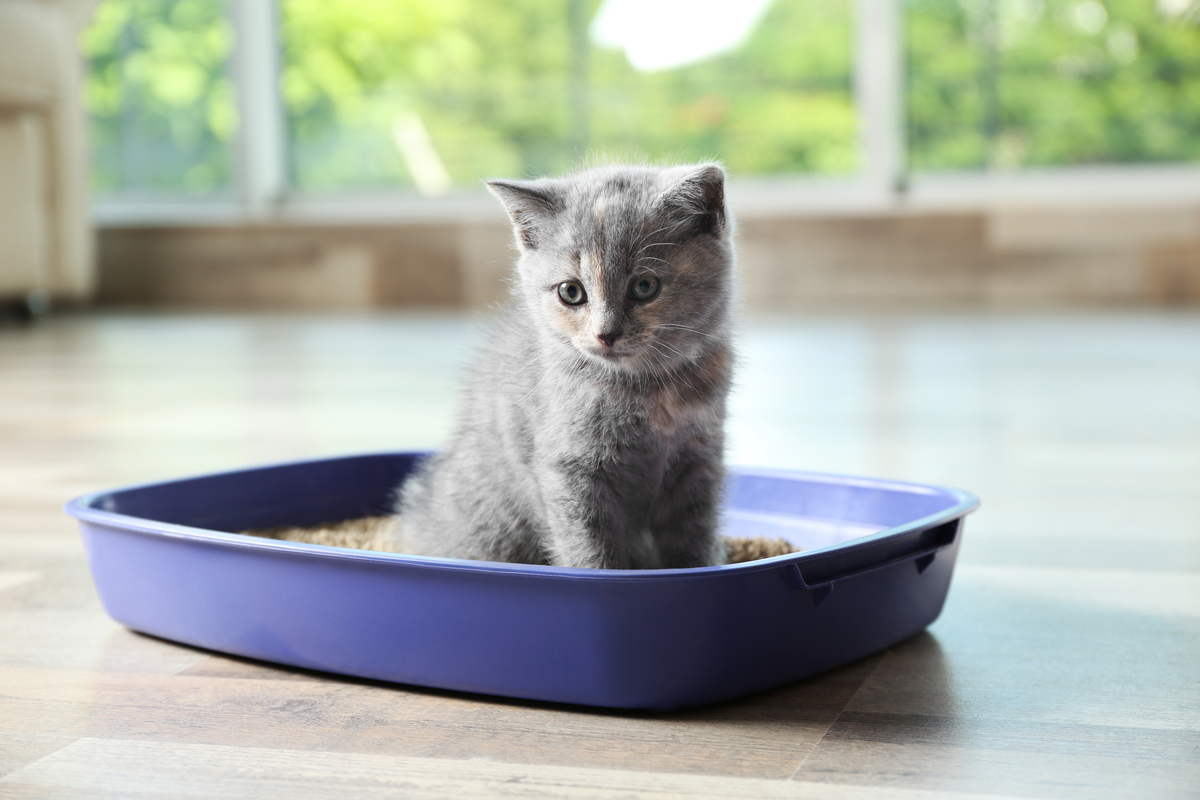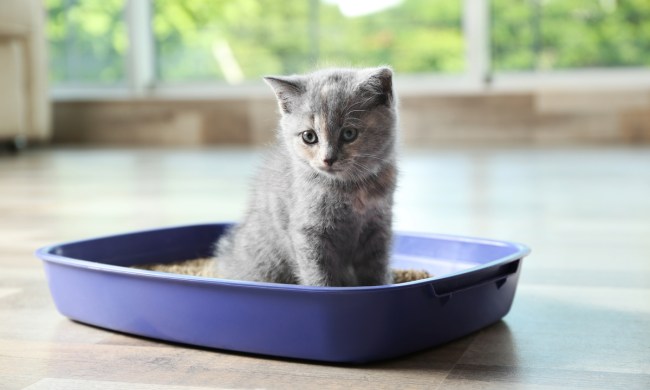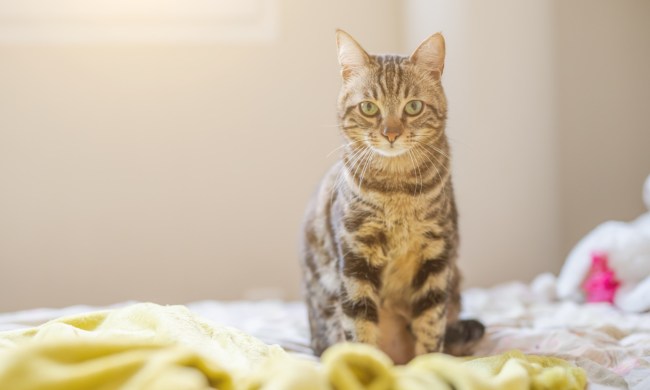Your cat’s litter box is a stinky mess, with litter cementing itself against the sides and bottom. No matter how often you dispose of used cat litter, no matter how hard you scrape, no matter how attentively you clean your cat’s litter box, the mess sticks around, and the smell, too. A good litter box liner could be the solution to your problem, making upkeep on your kitty’s litter box easier. But it’s also important to choose the right type of liner for the job.
How litter box liners help
A litter box liner serves as a barrier between the litter and the box, so that sticky mess that occurs when litter gets wet doesn’t clump itself to the box. The liner sits inside and over the edges of the box, so when it’s time to clean the box, all you have to do is gather up the liner and lift it out. You don’t have to worry about scrubbing the sides of the box or pouring the litter into a plastic bag — the liner takes care of everything. It saves you both time and effort and leaves behind a much cleaner litter box.
Strength and durability
Cat litter is plenty heavy, and it gets heavier when it’s wet. A liner needs to be strong enough to hold the litter, or else you’ll have a big mess on your hands — certainly on your floor. Some liners are heavier duty than others, and you might want to invest in thicker liners if your cat likes to paw enthusiastically at his box. (Trimming your cat’s nails can also help minimize the damage he can do to the liners.)
While most liners are made of plastic, some are taking a different approach. Reusable liners like the Modkat Liners are made of heavy-duty materials like tarpaulin. The Modkat Liners are reusable for up to three months, so you’re saving on refills and throwing out fewer liners, too. They pair with the Fresh Flip Cat Litter Box, helping make your entire cleaning routine easier.

Odor control
While liners will naturally help keep your cat’s litter box smelling better by minimizing the mess that comes into contact with the box itself, some liners offer additional odor control. Scented liners can help mask litter box odors, while some products are equipped with additives like baking soda to help neutralize odors.
Carbon litter box liners can also be helpful in minimizing smells. This highly absorbent material helps trap bacteria and odor. This is the same material that’s in the litter box filters that come with some plastic-frame boxes. By incorporating carbon (also called activated charcoal) into the litter box liner itself, these liners deliver welcome odor control.
Some liners even combine multiple methods. Nature’s Miracle Odor Control Litter Box Liners take a two-step approach to odor control. These liners feature antimicrobial protection to help minimize bacteria odors. Additionally, an odor-controlling fragrance helps mask any stinky smells.
Fit
To be effective, a liner needs to fit your cat’s litter box well. Some liners just sit over the rim of the box, making it possible for your cat to knock them loose and expose the sides of the box as he moves around.
A better option is liners with elastic edges. These fit securely over the rim of the box, and they often stay in place well. Always be sure to measure the box and check the dimensions of the liners so you get the right size.
If you’re working with an irregularly sized box, such as one that’s fully enclosed or that has a self-cleaning feature, you may need to purchase liners made specifically for that model box. Buying other types of liners could lead to liner sagging or tearing, so always look for a product that delivers an appropriate fit.

Ease of use
Liners should make your job of cleaning your cat’s litter box easier, and many do that through handy closure designs. Options like the PETOCAT Litter Box Liners come equipped with a handy drawstring, so you can just pull the liner closed before you even remove it from the box. Other options come with twist ties, and you can always knot off the liner to close it if need be.
Value
Value definitely matters when making any purchase, but when buying litter box liners, don’t base your decision on the liner’s price alone. A lower-cost liner that’s thin and prone to tearing won’t do a great job in keeping the litter box clean or in saving you time. Instead, it makes sense to spend a little more for a liner with the above qualities — durability, convenience, and odor control. It can make cleaning the box easier for you while also helping keep the litter box a more pleasant space for your kitty.


